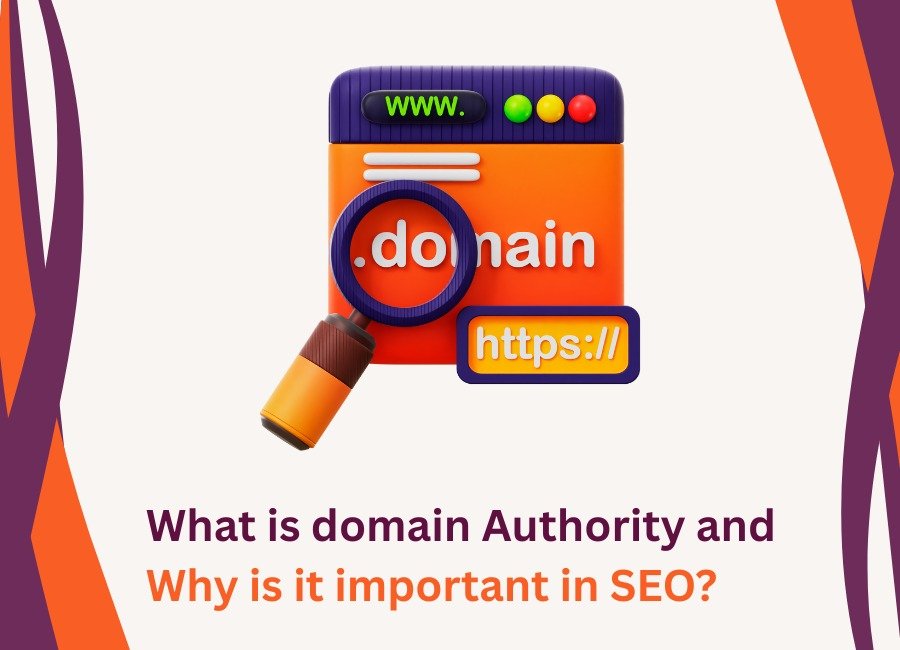f you’re stepping into the vast world of SEO or content marketing, you’ve probably heard the term Domain Authority (DA).
Understanding domain authority is a great starting point for mastering SEO fundamentals.
For seasoned webmasters, discussing domain authority can be quite exciting. However, for those new to SEO, it might initially sound confusing — but don’t worry, it’s neither trivial nor as complicated as rocket science.
If you’re an aspiring webmaster, blogger, or digital marketer, stick around — this guide will give you valuable insights into your website’s ranking potential.
What Exactly Is Domain Authority?
Before understanding its impact on SEO, it’s essential to know what Domain Authority means. There are two perspectives:
Domain authority (conceptually): It refers to how important and relevant a website is concerning a particular subject area or keywords.
Domain Authority (DA) by Moz: This is a predictive metric developed by Moz that estimates how well a website might rank on search engines.
Why Is Domain Authority Important?
For anyone venturing into SEO or digital marketing, understanding DA is fundamental. In today’s digital world, your blog or website forms your identity. Visitors who connect with your content judge your online persona based on your site’s credibility—and Domain Authority is one of the metrics that reflect it.
DA is not a trivial number. It’s a crucial indicator of your website’s health and its ability to rank well, especially when you’re competing in saturated markets like Mumbai, where top businesses often partner with a reputed SEO company in Mumbai to gain an edge.
How Is Domain Authority Calculated?
Domain Authority scores range from 1 to 100. A higher score suggests a better likelihood of ranking higher on the Search Engine Results Pages (SERPs) like Google, Bing, and others.
Factors influencing DA include:
The number of quality backlinks
Linking root domains
Overall website structure and SEO health
A website’s DA score is relative; it’s not about achieving the highest number universally, but rather beating your competitors’ scores.
What Is Considered a Good Domain Authority?
Here’s a general rule:
1–20: New websites (normal for startups)
30–50: Average, growing steadily
50–60: Strong and competitive
60–80: Very strong, authoritative
80–100: World-class (think Google, Apple)
When evaluating your website’s performance, it’s smart to benchmark against similar businesses or industries. For instance, an emerging tech startup in Mumbai would not compare its DA to that of Amazon but rather to other tech companies locally.
How to Improve Your Domain Authority
If you’re serious about enhancing your website’s DA, here are steps you can take:
Build High-Quality Backlinks: Focus on earning backlinks from reputable sites within your niche.
Create Outstanding Content: Content that educates, informs, or entertains tends to attract organic backlinks.
Improve Internal Linking: Make sure your site’s internal structure is strong to distribute link equity effectively.
Optimize On-Page SEO: Meta tags, keywords, and site speed optimization all play a role.
Invest in SMM: Promoting your content through social media increases visibility, brand trust, and can lead to more backlinks.
Many leading digital marketers advise collaborating with a specialized SEO company in Mumbai that also provides SMM services. An integrated SEO and SMM approach can significantly accelerate your Domain Authority growth over time.
What is Domain Authority?
First, it’s important to distinguish between “domain authority” as a general concept and “Domain Authority” (DA), the proprietary metric developed by Moz.
In simple terms, domain authority describes how authoritative or trustworthy a website appears, especially within a targeted subject area. Moz’s Domain Authority metric, scored on a scale of 1 to 100, predicts how well a website is likely to rank on search engines like Google.
VentureSkies explains it best:
“The domain authority of a website describes how important the site is for a specific targeted subject area and its relevance concerning search queries.”
Understanding your Domain Authority can be crucial whether you’re optimizing your site yourself or relying on a professional SEO company in Mumbai to boost your rankings and manage your SMM efforts.
How is Domain Authority Calculated?
Domain Authority is largely based on the quality and quantity of backlinks pointing to your website. Essentially, the more reputable sites that link back to you, the higher your DA score is likely to be. However, it’s important to remember that:
DA is relative, not absolute. A “good” or “high” DA depends on your competition.
Your DA can fluctuate over time as Moz updates its algorithms or as your competitors enhance their SEO efforts.
Multiple SEO tools offer similar authority metrics. Apart from Moz’s DA, Ahrefs uses Domain Rating (DR) and Semrush provides an Authority Score. At agencies like LinkBuilder, Ahrefs’ Domain Rating is often preferred because of its robust backlink analysis features.
Regardless of the platform, the principle remains the same: authority scores predict the strength of a website’s backlink profile, and by extension, its potential ranking power.
Is Domain Authority a Google Ranking Factor?
While many believe that increasing their Domain Authority will improve their Google rankings, it’s important to clarify:
Google does not use Domain Authority as a direct ranking factor.
Moz itself confirms that DA is not part of Google’s algorithm. Instead, it’s a predictive metric created by SEO experts to estimate how well a domain might perform compared to others.
However, elements that influence DA — like quality backlinks, content relevance, and site trustworthiness — do impact Google rankings. In fact, linking to high-authority sites and earning backlinks from reputable domains remains a critical part of SEO.
Thus, while DA itself is not a ranking factor, the practices that improve your DA will almost certainly help your search engine visibility.
How to Improve Your Domain Authority (and Your Rankings)
Here are practical steps you can take to improve your Domain Authority:
Build High-Quality Backlinks: Focus on earning links from authoritative websites relevant to your niche.
Create Exceptional Content: Publish valuable, original content that naturally attracts backlinks.
Optimize On-Page SEO: Improve your meta tags, site speed, mobile responsiveness, and keyword usage.
Enhance User Experience (UX): Make your site easy to navigate, engaging, and visually appealing.
Strengthen Your Social Media Presence: Smart SMM campaigns can help distribute your content and earn more backlinks.
Remove Harmful Links: Use tools like Google’s Disavow Tool to eliminate low-quality backlinks.
Be Patient: Building domain authority is a long-term process. Consistency and persistence are key.
By combining these methods — especially when partnering with an expert SEO company in Mumbai that also offers robust SMM services — you can steadily increase your site’s authority and visibility.
Final Thoughts
Domain Authority is not an official Google ranking factor, but it remains an extremely valuable benchmark for understanding your site’s SEO strength.
While you shouldn’t obsess over the number itself, using Domain Authority as a comparative metric — along with SEO fundamentals like backlink building, content marketing, and effective SMM — can give you a clear roadmap to higher rankings, greater traffic, and sustainable online growth.








